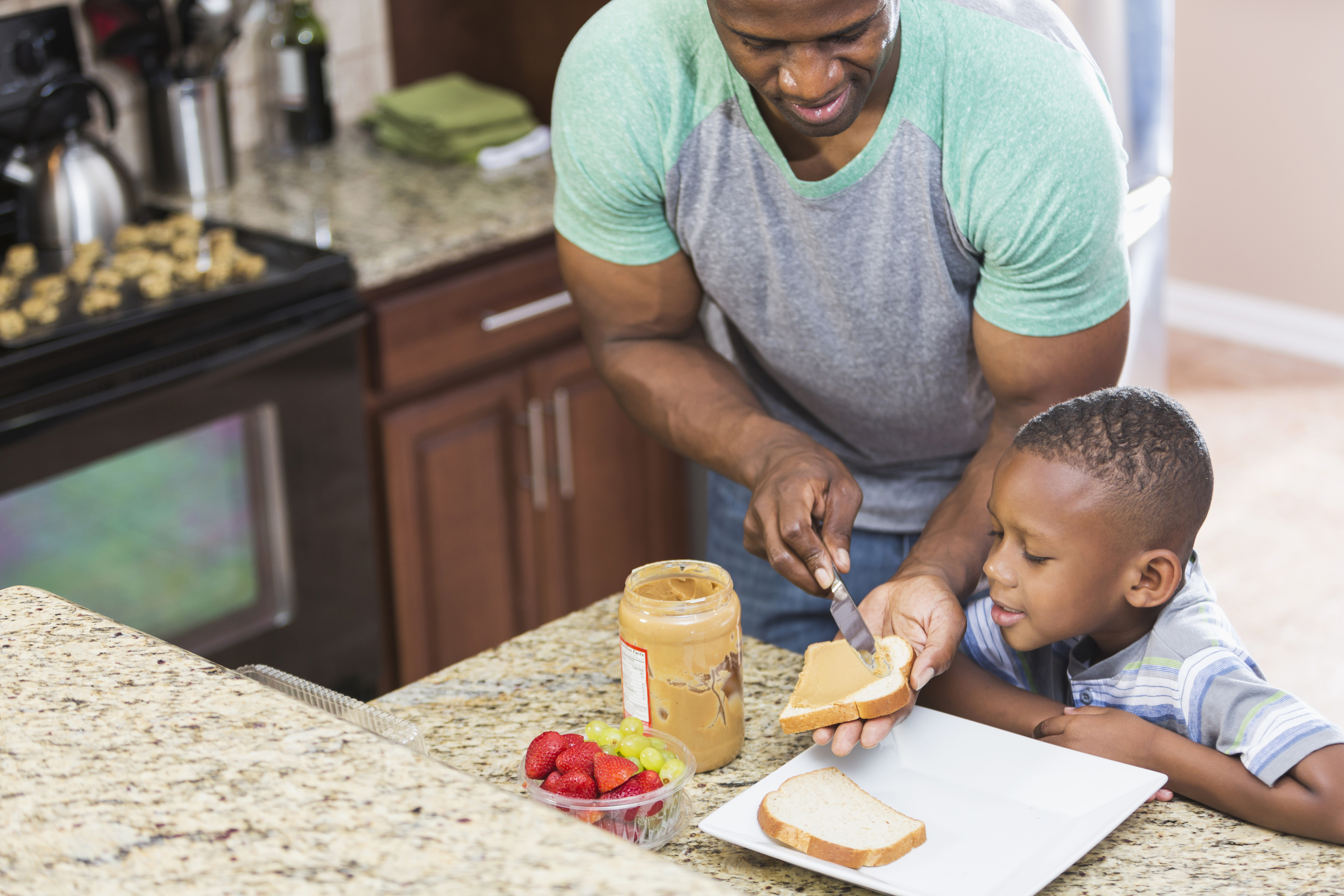A new UConn study is taking a look at combating child obesity with a father-focused approach.
The study, which began in May with a $420,000 grant from the National Institutes of Health, will capture outcomes of father-led parenting practices such as meal planning, cooking, and physical activity.

“Most obesity prevention parent education programs focus on mothers,” says lead researcher Amy Mobley, assistant professor in the Department of Nutritional Sciences. “We have to recognize that the traditional role of a father is changing, and fathers have a significant impact on their child’s heath.”
More than 70 percent of fathers living with children under the age of 5 feed or eat meals with their children daily, according to Mobley.
Sixty Connecticut fathers with preschool-aged children are participating in the program, which consists of eight weekly two-hour sessions, during which time each father will interact with his child in various activities from healthy snack preparation to physical activities and games.
The study is directed at lower-income families eligible for federal food assistance programs. Lower-income men are more likely to be involved in meal planning, shopping, and preparation compared to higher-income men, and research shows that low-income fathers tend to use more undesirable feeding practices, Mobley says.
To keep the fathers engaged between sessions, the study will include a web/phone app where fathers will be able to post and communicate with one another, while receiving motivational texts and posts from the team.
“The program will be very interactive,” Mobley notes. “We’ll have activities to demonstrate cooking, meal planning, and physical activities that will carry over to the home.”
Mobley felt inspired to work with fathers after watching her daughter and husband interact.
“As childhood obesity rates remain high in the United States, novel interventions are needed in early life,” she says.
Mobley is collaborating with UConn’s Department of Human Development and Family Studies, UConn Health, and Cooking Matters. Cooking Matters, a program designed to teach parents and children how to shop and prepare healthy foods on a limited budget, is managed through the Community Health Network of Connecticut Foundation (CHNCT).
She has assembled a team of partners including Tania Huedo-Medina, assistant professor of biostatistics in the Department of Allied Health Sciences; Kari Adamsons, associate professor in the Department of Human Development and Family Studies, whose focus is on fathering; Kim Gans, professor in the department of Human Development and Family Studies, as a community-based nutrition intervention expert; and Ann Ferris, former head of the Department of Nutritional Sciences and founding director of UConn Health’s Center for Public Health and Health Policy.
Adapted from an article that was published in the College of Agriculture, Health, and Natural Resources newsletter, Naturally@UConn.



